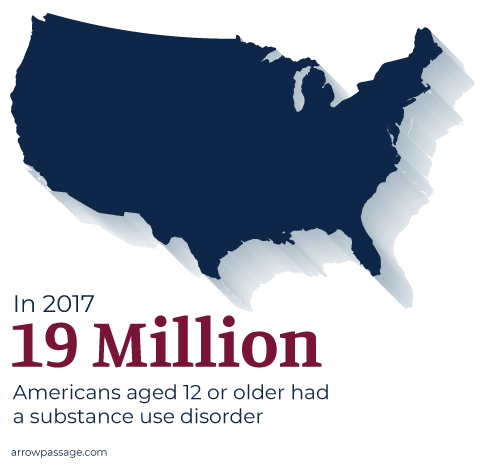Effective Relapse Prevention Strategies for Lasting Recovery
Learn the signs of and the skills needed to prevent relapse
Relapse Prevention:

Prepare for the worst, hope for the best
Planning for Relapse: A Recovery Journey
In 2017, close to 19 million Americans aged 12 or older had a substance use disorder related to alcohol and/or illicit drugs in the past year.1
Of these, approximately 14.5 million Americans had an alcohol use disorder and 7.5 million people experienced an illicit drug use disorder.
People with substance use disorders who sought treatment and became sober then faced the issue of relapse:2
- Only about a third of people who are sober for less than a year will stay sober.
- For people who reach a year of abstinence, less than half will relapse.
- People who reach 5 years of sobriety have a chance of relapse of about 15%.
Relapse prevention is an important part of addiction treatment to keep recovering people safe and sober. Let’s take a look at relapse in detail, and how a plan to prevent relapse can help you or a loved one stay (or get back on) the recovery journey.
The Cycle of Addictiond
1. Initial Use
2. Abuse
3. Tolerance
4. Dependence
5. Addiction
6. Relapse
More Ways to Prevent Relapse
Relapse is returning to drug and/or alcohol abuse after a period of sobriety.
There are two major components taught in relapse prevention:
- How to identify the warning signs that can lead to relapse
- Coping skills to avoid relapse
Recovery is a process, not a single event, and needs vigilant attention.
A relapse prevention plan is a practical program that helps spot the signs of relapse, and to address the risks quickly and effectively.

Learn More About Recovery
How Does Relapse Develop?
The relapse process is progressive, much like the disease of addiction. The first drink or drug taking incident is the final act in the relapse process, but certain conditions developed well before that action. Thoughts, circumstances and behaviors that led to the relapse began long before drinking or drug use restarted. Relapse prevention plans educate people about these signs and how to get help in the early stages.
Stages of Relapse
The stages of relapse can be split into three categories: emotional, mental and physical.
Emotional
Relapse
The person progressively becomes defensive, angry and anxious. Feelings of isolation are setting in. The person knows help is needed at this stage, but won’t ask for it, pretending all is fine. Meeting attendance has stopped.
Mental
Relapse
The person is undergoing an internal battle: it’s wanting to use vs. knowing he or she shouldn’t. Thoughts of using turns into planning to use. The person glamorizes about past substance use (it wasn’t so bad) and begins to lie about real feelings. Old drug friends are contacted and dreams about substance use take place.
Physical
Relapse
Substance abuse returns.
Relapse Rates in the United States
About 10% of people in the United States with substance use disorders get the treatment needed. 40% to 60% relapse within 1 year. 3 The average rates of reverting back to using ranges from 50% to about 90%, depending on the substance.
Relapse Rates by Substance
Heroin and Opiate Painkillers: One study found that about 91% of opiate dependent people relapse, and 59% of them do so within one week. 4
Alcohol: Research shows that about 90% of individuals who have AUD (alcohol use disorder) will probably have one relapse during the 4 years following treatment. 5
Marijuana: About 71% of people in recovery for marijuana misuse reported a relapse where they used the drug at least once within 6 months of initial abstinence. The average time for reverting back to using marijuana was 73 days. 6
Methamphetamines: About 52% of people who undergo rehab for meth use then relapse in about three months. Over time, 80% percent relapse within one year.7
Cocaine: A little more than 23% of people in one study reported reverting back to weekly cocaine use in the year following treatment.8
What Is the Purpose of Relapse Prevention Classes?
Relapse prevention classes teach people in recovery:
- How to handle social settings and emotional triggers that can lead to relapse.
- How bad judgement and not paying attention to coping skills can lead to relapse.
- How to handle negative circumstances in constructive ways to avoid relapse.
- How to anticipate situations and react using specific action plans to avoid a relapse.
Past relapses are valuable in that knowledge gained from these experiences can be used in developing the finer points of future relapse prevention plans. By using what happened before with a prior relapse, these specific points can be included in the next plan to help avoid relapse the next time.
What Are the Warning Signs of Relapse?
A large part of relapse prevention education and plans is a list of warning signs to look for, including:
- Not following the predetermined aftercare treatment plans
- Medications aren’t being taken properly
- Isolation from family and friends who aren’t users
- Relationship difficulties at home, work or school
- Visiting places where substance abuse occurred
- Contacting friends who abuse substances
- Not attending meetings
- Refusing to reach out for help with a sponsor
- Feeling overconfident that support is no longer needed
- Feeling overwhelmed, purposeless and confused
- Changes in sleep and eating patterns
- Personal hygiene habits deteriorate
- Energy levels begin to ebb and flow
- Stress levels are rising
- Setting impractical goals, feeling a need to be perfect
- Feeling there is too much time to fill leads to boredom and irritability
- Structure and routines deteriorate
- Obsessive thoughts about using substances occur
- Psychiatric symptoms change
- Resentment and anger grow
- Obsessive behaviors develop such as gambling, overworking, sexual promiscuity, overreacting to situations
- Major life changes such as grief, loss or trauma
- Refusal to deal with personal issues and other problems
- Ignoring triggers and warning signs
Stages of Reverting Back to Substance Use
Hitting a Recovery Roadblock
Problems happen that may be challenging to deal with positively. Once these roadblocks are hit, recovery goals can be hard to remember, and negative thoughts develop, such as believing there are no apparent solutions.
Denial of the Problem
Instead of recognizing roadblocks and asking for help, denial is used to pretend all is normal. At some level, problems still exist, but denial may occur, creating stress and anxiety.
Substituting Other Compulsions
To relieve building stress and anxiety, other compulsive behaviors begin. Overworking, excessive eating, too much dieting or over-exercising are signs and used as distractors. The pain and stress will and does reappear.
Trigger Event
A small or serious event occurs. A small event is magnified into more than it really is, triggering a loss of control.
Internal Breakdown
A loss of control occurs as stress levels rise and emotions magnify. Abstinence requires controlling emotions and using the intellect to bring forth positive behaviors. When emotions have control of the intellect, positive behaviors are sacrificed to emotions, regardless of the repercussions.
External Breakdown
Annoyance, anger and impatience are growing, but these changes are kept behind closed doors. Problems with friends, families and coworkers start to develop. Recovery meetings are often missed and attempts to help provoke angry reactions.
Loss of Control
Problems continue without resolutions. Larger issues are being ignored. Attempts to forget about these problems occur via compulsive activities (distractors) and fantasies about compulsions. Life becomes a series of problems in an apparently endless string of calamities. Once the realization happens that life is now out of control, intense anger and fear develop. Sobriety is seen as the source of all life’s problems.
Addictive Thinking
Addictive thinking returns, and sobriety is tied to this now miserable life. The attitude that no one really understands what he or she is going through develops. He or she fantasizes about old drug friends as a means to escape sober people who just don’t understand. Since the sober person is experiencing problems, the delusion becomes that maybe former problems weren’t from using substances, so it’s okay to use again. The person feels a need to escape.
Returning to Addiction
The person contacts people he or she used substances with, visits places where using occurred and acts out addictive behaviors through compulsive activities. The delusion is that the person is going to visit just to relax, not to take substances.
Using Substances
Once exposed to the people, places and circumstances where substance use occurred, the person begins to use again. Life problems look to be so overwhelming, only three choices seem to be left: a breakdown, suicide or self-medication. Medicating the pain with alcohol or drugs seems the best choice. Alcohol or drugs are taken in the mistaken belief it will make problems and pain disappear or it will create solutions.
Losing Control Over Use
Once using alcohol or drugs starts, the person tends to either have a short-term relapse (where loss of control is recognized and help is sought) or extreme shame and guilt prevents him or her from seeking help. Without help, life and health problems are now serious. Either there is a re-entry into recovery, suicide occurs, or fatal medical complications, accidents, or substance-related violence occurs.
What Are Ways to Reduce the Risk of Relapse?
Elements of a Quality Relapse Prevention Plan
An effective relapse prevention plan involves preparing for the possibility of reverting back to substance use and identifying ways to avoid it. Here are some elements that should be included in a well-developed, comprehensive relapse prevention plan:
- Regular attendance at individual and group therapy sessions
- Attending 12-step programs (such as AA or NA)
- Regular contact with 12-step sponsors
- Adapting the environment of the recovering person to make it encouraging for abstinence (different home, school, job, neighborhood, acquaintances, friends)
- Family assistance and support
- Developing a peer network of support to avoid handling recovery alone
- Identifying any gaps in the current relapse prevention plan, removing ineffective methods and replacing them with new methods
- How to use newly learned coping skills discussed in therapy to replace old behaviors that had contributed to addiction
- Using resources that understand recovery’s complexity
Additional Mental Health Treatments Available
Benefits of a Relapse Prevention Program
The following are general guidelines that people in recovery from substance abuse learn. The benefits are that individuals learn to recognize the signs of a possible relapse and to seek help as soon as any signs appear. The areas covered in an effective relapse prevention program include:
Handling high risk situations, such as difficult or negative circumstances or socializing where there is alcohol.
Recognizing warning signs, such as feeling blue and then considering using drugs or alcohol because of it. Participants learn to seek relapse prevention help when these feelings are strong.
Learning that reaching out for help in the early stages to prevent relapse is most effective. The longer a recovering person waits to ask for help, the more severe a relapse can develop.
Why attending 90 meetings in 90 days is essential immediately after rehab. Regular attendance provides much needed support and structure for sobriety. For many, meetings are necessary all through life to maintain abstinence, so a lifelong commitment is needed.
Learning how to effectively use the help of sponsors who volunteer their time and experience to help others in recovery.
Reviewing behavioral plans to learn when and how to seek help before a relapse becomes acute.
Learning how to use alternative therapeutic tools to relax and express feelings safely such as restorative yoga, biofeedback, acupuncture and general spirituality.
Many people struggle to manage their recovery properly on the first few tries. With this in mind, comprehensive treatment programs have essential points in relapse prevention programs that are customized for each person. By completing assessments throughout treatment, relapse prevention plans are further individualized as more is learned about the person and thier life.
Why Is Relapse So Dangerous?
When drugs and/or alcohol are consumed regularly for an extended period of time, tolerance develops.
When substance use stops, tolerance drops.
Relapse then becomes an extremely dangerous situation, because a person may take half the dose they did when they were using.
But with a low tolerance level in place, that dose may be way too high for the person’s body to tolerate, leading to overdose or death.
What Should Someone Do If Relapse Happens?
The first step in a relapse is to reach out to someone in the support network: a friend, family member, sponsor or therapist. If a relapse remains hidden, it becomes a dangerous and possibly life-threatening situation.
The next step is to re-enter treatment. This is not the time to give up, but to learn from the latest relapse to make this round of treatment even more effective, as well as using it as fuel for a more powerful relapse plan.
What Can I do to Support Healing after a Relapse?
If your loved one just experienced a relapse, be empathetic because addiction is a chronic disease and relapse is common. Also, to help get your loved one back in treatment, you can hold an intervention.
An intervention is a meeting of loved ones who are concerned about the person’s well-being and offering assistance in the form of treatment. The group attempts to connect substance abuse and the negative consequences the relapsing person is experiencing.
The goal is to have the individual make the same connection and then agree to go to treatment to help fix the situation. A formal Intervention can be guided by a professional interventionist.
Intervention Models
Direct Confrontation: Loved ones discuss with the relapsing person specific examples of harmful consequences and how substance abuse has made a negative impact. The goal is to have the person enter treatment. If he or she doesn’t enter treatment, there will be consequences.
Indirect Confrontation: The group has meetings with an addiction specialist to learn coping skills on how to deal with the person in the throes of an active addiction. Meetings are held with or without the relapsed person.
Forcible Intervention: A direct intervention that forcibly confines the person who relapsed. Court-ordered treatment is forcible intervention.
Motivational Interviewing (MI): An ongoing dialogue with the person who has relapsed is held to increase motivation that leads to a commitment to change and entering treatment.
Systemic Intervention: Loved ones can unintentionally allow and even aid substance abuse behavior. Systemic intervention looks at and tries to modify these enabling behaviors by pointing out the hazards and drawbacks.
ARISE: Encouragement and compassion are used to establish a sense of safe support while an intervention is ongoing. The aim is to motivate the person to enter treatment by pointing out the benefits.
"Mulligans' in Relapse and How to Deal With Them
A “mulligan” is a golfing term for a “do over”. Mulligans in recovery recognize imperfection and allow for self-forgiveness to return to sobriety. Some common high risk situations that can lead to a backslide and how to deal with them include:

Car Crash
A car crash can be a traumatic experience. Trauma can be a trigger for relapse. It’s essential to reach out to your support network to process this kind of traumatic event so it doesn’t kickstart a relapse.
Divorce
The sense of betrayal and rejection that you may feel in a divorce situation can be emotionally and mentally hard to handle. The sadness and grief may make you think about drinking or taking drugs to numb the bad feelings. It’s important to recognize the old coping mechanisms early on, and instead use the positive ones from your relapse prevention plan.


Job Loss
Losing your job can be like losing a part of your identity with the added stress of losing your income. It’s vital to rely on your relapse plan and support network to avoid a backslide into drugs or alcohol. Put the job loss in perspective: you’ll need to get back out there to find another, and if you relapse, a new job will be virtually impossible to get.
Death of a Loved One
Losing someone you love is heartbreaking, and it may seem like an easy jump that drinking or doing drugs would help, but it won’t. Drugs and alcohol will just make you feel worse in the long run and will prolong your grief process. Seek professional help to work through your loss. Attend more peer support meetings. Your peers can give you the tips and support you’ll need to get through this difficult time while maintaining your sobriety.

Getting Back on the Road to Recovery
Treatment centers that provide comprehensive relapse prevention programs are best if you or a loved one is struggling with substance abuse. Getting back on your feet isn’t easy, but with the right treatment program, you can find your way back to the journey of recovery.
This information is brought to you by Arrow Passage Recovery.
Resources
- https://www.samhsa.gov/data/report/2017-nsduh-annual-national-report
- https://www.ncbi.nlm.nih.gov/pubmed/17986709
- https://jamanetwork.com/journals/jamapsychiatry/fullarticle/1839290?resultClick=1#yoi130117r2
- https://www.ncbi.nlm.nih.gov/pubmed/20669601
- https://pubs.niaaa.nih.gov/publications/aa06.htm
- https://www.sciencedirect.com/science/article/pii/S0740547203000837
- https://www.reuters.com/article/us-detox-rehab-idUSBRE8700WJ20120801
- http://www.datos.org/Abstracts/Simpson-99-AGP-Abstract.html














